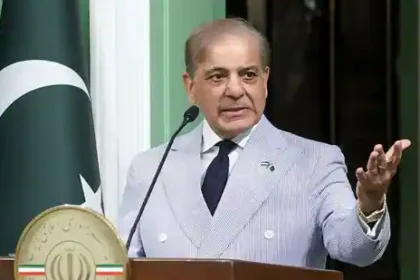Elon Musk Once Asked Who Would Lead Dogecoin—Here’s the Viral Answer He Gave
In a high-profile departure that’s stirring waves across Washington and Wall Street alike, billionaire entrepreneur Elon Musk has stepped down from his post as head of the Department of Government Efficiency (DOGE). The move comes just four months after Musk accepted the controversial role in former President Donald Trump’s administration.
Musk, the CEO of Tesla and SpaceX, announced his resignation via a statement on X (formerly Twitter), ending what many described as one of the most unorthodox tenures in American government. “As my scheduled time as a Special Government Employee comes to an end, I would like to thank President @realDonaldTrump for the opportunity to reduce wasteful spending,” Musk wrote. “The DOGE mission will only strengthen over time as it becomes a way of life throughout the government.”
His departure, however, appears to be more than just a routine term completion. Musk’s exit came merely 24 hours after he publicly criticized Trump’s much-hyped “Big Beautiful Bill”—a sprawling legislative package aimed at infrastructure and defense, which Musk claimed contradicted DOGE’s core principles of cutting inefficiencies and government overspending.
“A bill can be big, or it can be beautiful. But I don’t know if it can be both,” Musk quipped during a press briefing. “My personal opinion is that this bill increases the national deficit and undermines everything DOGE stands for.”
Who Will Lead DOGE Now?
With Musk gone, the future leadership of DOGE has been thrust into uncertainty. When asked earlier this month who might succeed him, Musk responded with characteristic eccentricity. “DOGE is a way of life, like Buddhism. Is Buddha needed for Buddhism? Was it not stronger after he passed away?”
He continued, “The mission of DOGE doesn’t end with me. It will gain momentum.”
Musk’s comments have ignited a mix of confusion and debate within the administration and among political analysts. While some view his comparison to Buddha as flippant, others interpret it as a calculated move to position DOGE as a lasting ideological framework rather than a temporary bureaucratic initiative.
A Controversial Tenure
Elon Musk’s time with DOGE was tumultuous from the start. Though not an elected official, Musk wielded immense influence, operating as a de facto czar for government restructuring. Under his leadership, several federal agencies underwent significant downsizing, with Musk emphasizing “lean governance” and cost-efficiency.
He ordered the shutdown of overlapping departments, forced aggressive cuts in federal contracts, and even attempted to introduce blockchain-based auditing for public expenditures—an initiative that earned both praise and ridicule.
However, Musk’s dual responsibilities as a government appointee and a tech CEO did not come without backlash. Critics accused him of conflict of interest, particularly when Tesla’s stock plummeted by 15% amid growing concerns over his divided attention. SpaceX, too, reported project delays that many attributed to Musk’s government involvement.
Investor Pressure and Public Protest
Musk’s engagement with the Trump administration sparked protests both domestically and internationally. In the U.S., demonstrators criticized his alignment with a polarizing political figure. In Europe, environmental groups voiced concerns over Musk’s support for deregulation, fearing it could impact global sustainability policies.
Investor unrest grew louder with each passing month. Shareholders urged Musk to refocus on his private enterprises, warning that Tesla and SpaceX could face long-term damage from his political entanglements.
As investor confidence dipped, Musk began reducing his political donations—despite having funneled nearly $300 million into Trump’s reelection campaign and Republican congressional bids in 2024.
Legacy of DOGE and Musk’s Future
Despite the controversies, Musk’s DOGE initiative introduced several lasting reforms, including a real-time transparency dashboard for government expenses and the experimental integration of AI into public sector planning.
Whether these reforms will survive under new leadership remains uncertain. Some insiders believe Trump may tap a loyalist to replace Musk, possibly someone from the private sector again. Others advocate for a civil servant with policy experience to restore balance after months of disruption.
As for Musk, he’s expected to return full-time to Tesla and SpaceX, although insiders suggest he may continue advising the administration in an unofficial capacity.
“I’ve learned a lot during my time at DOGE,” Musk wrote in his resignation note. “And I’m confident that the movement we started—lean, agile, and tech-driven governance—will continue to reshape how the public sector works.”
Conclusion
Elon Musk’s resignation from the DOGE department marks the end of a peculiar yet transformative chapter in U.S. government history. While his unfiltered style and radical reforms drew sharp criticism, they also ignited discussions about efficiency, innovation, and the future of governance.
Now, all eyes are on the White House as it searches for Musk’s successor—and on Musk himself, whose next moves are bound to keep the public, markets, and political world on edge.
Also Read : Eid-ul-Adha 2025: Bangladesh Railway Opens Advance Ticket Sales for Bakrid Travel








